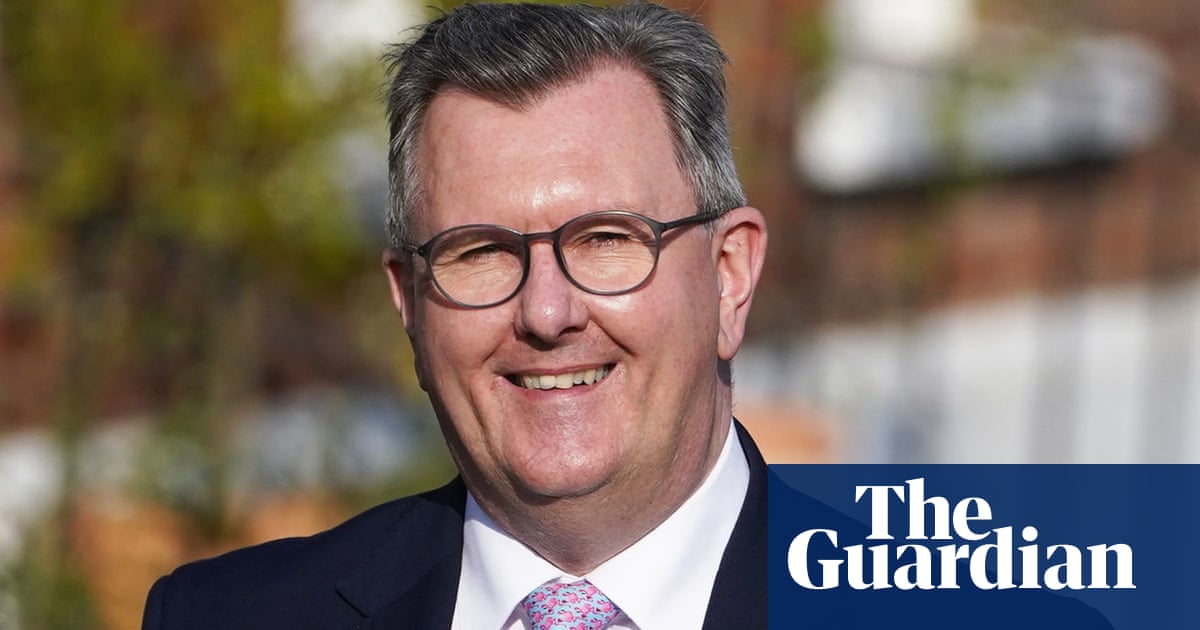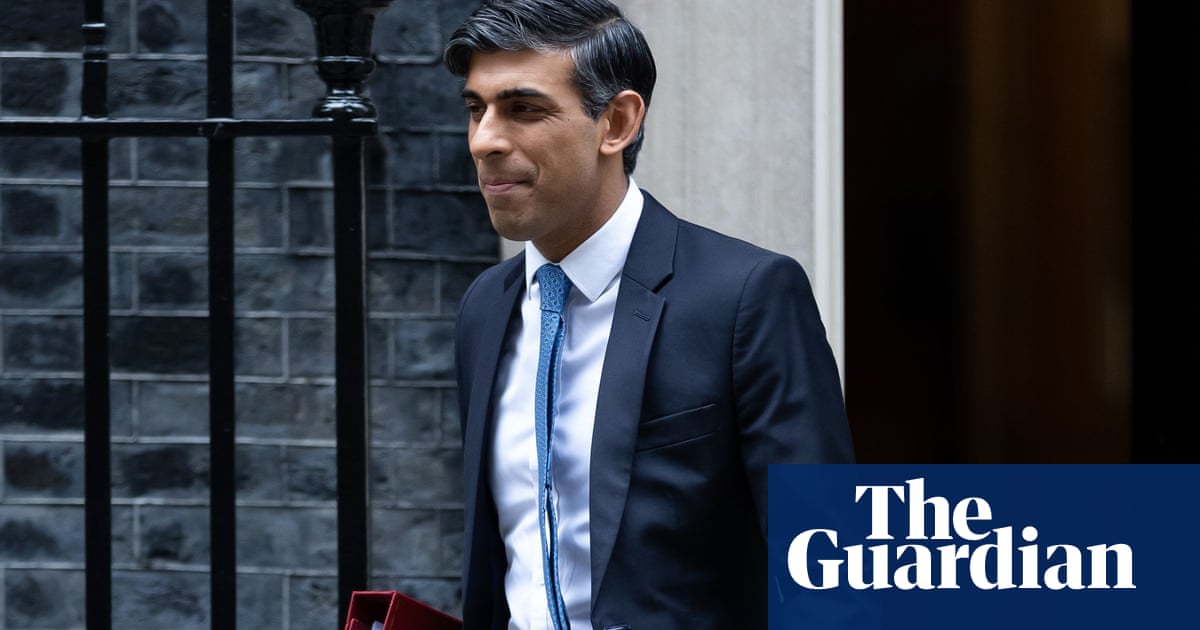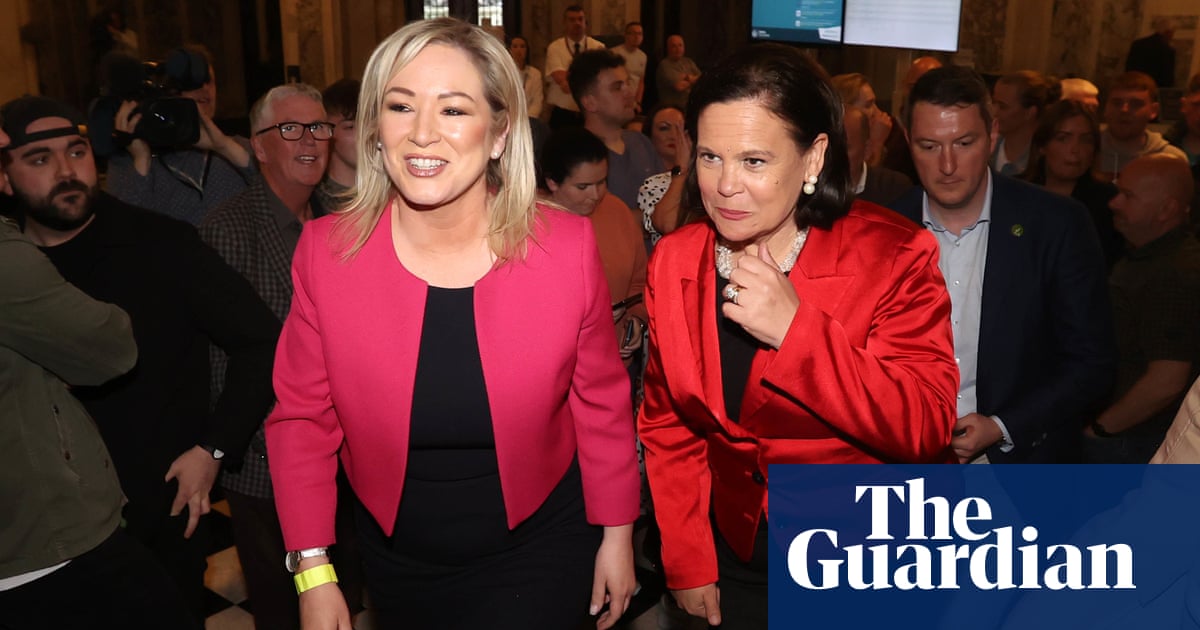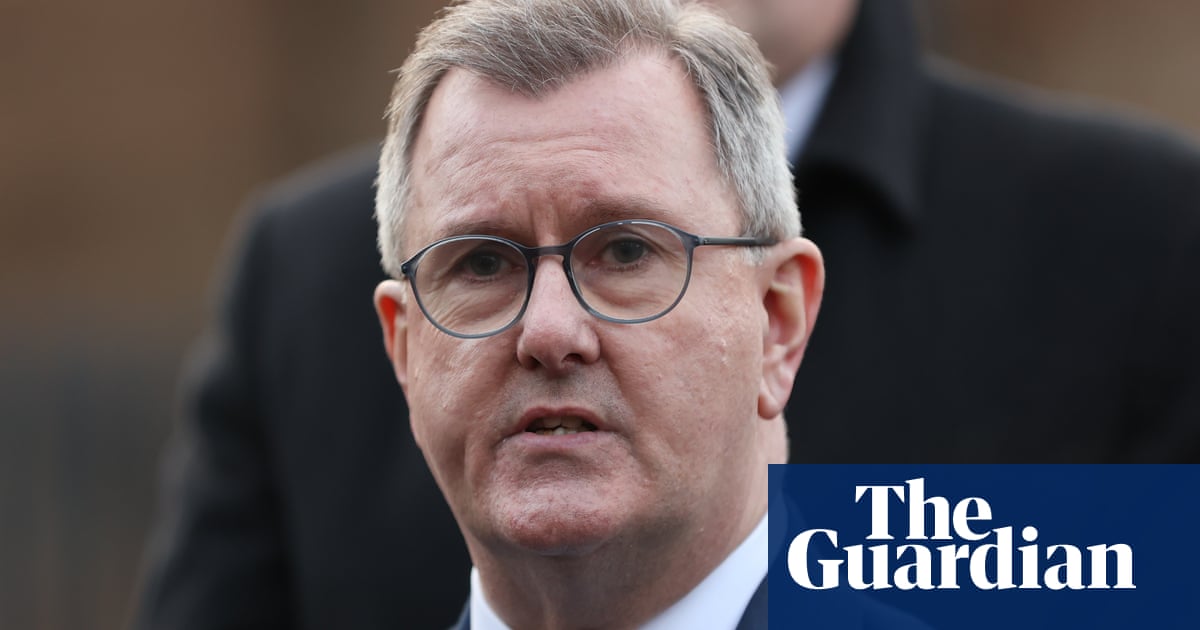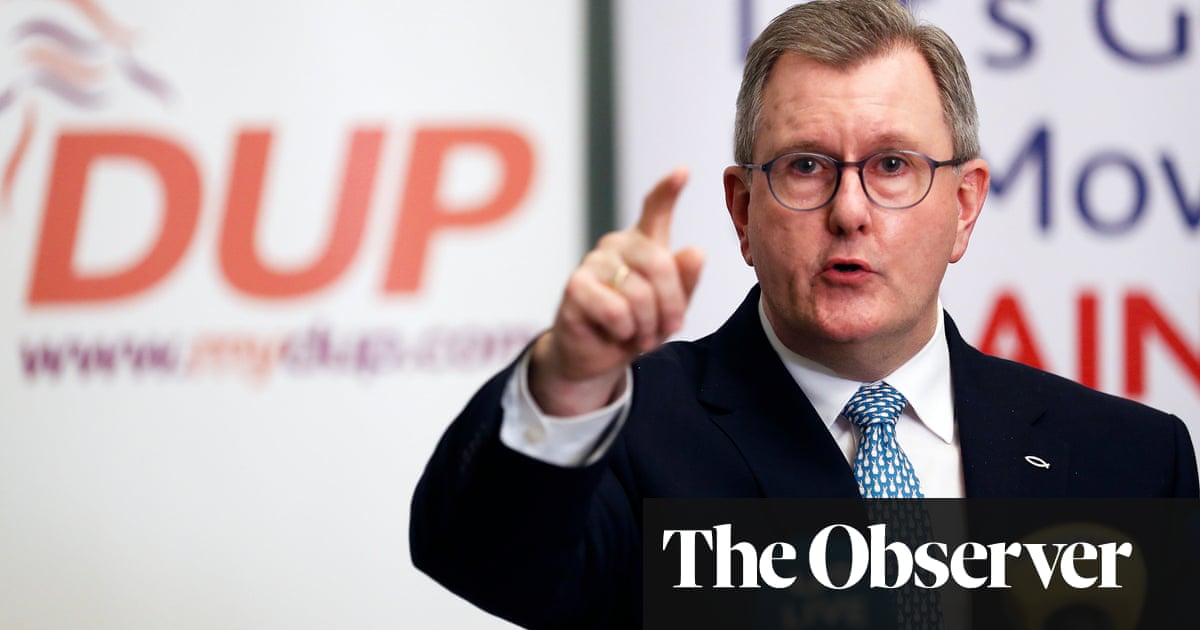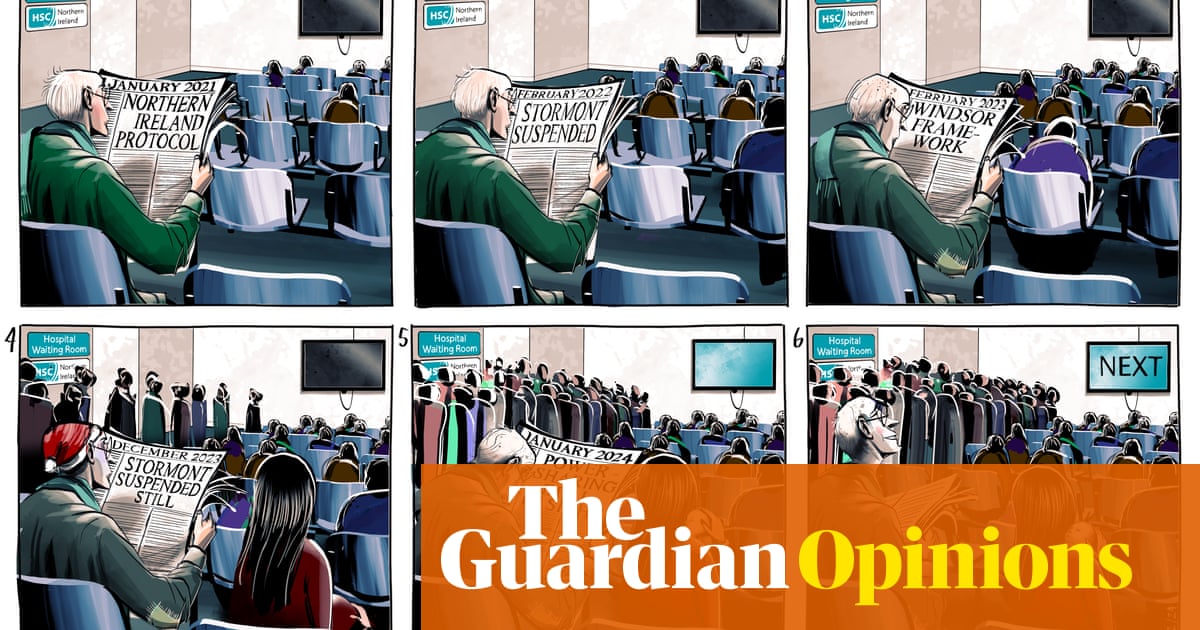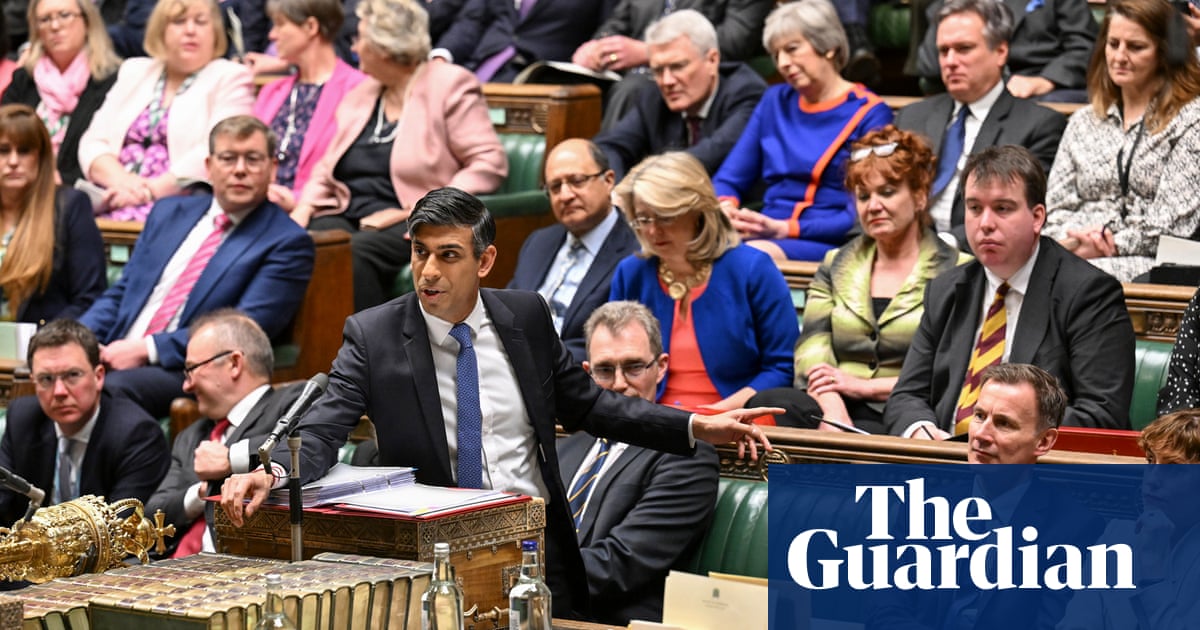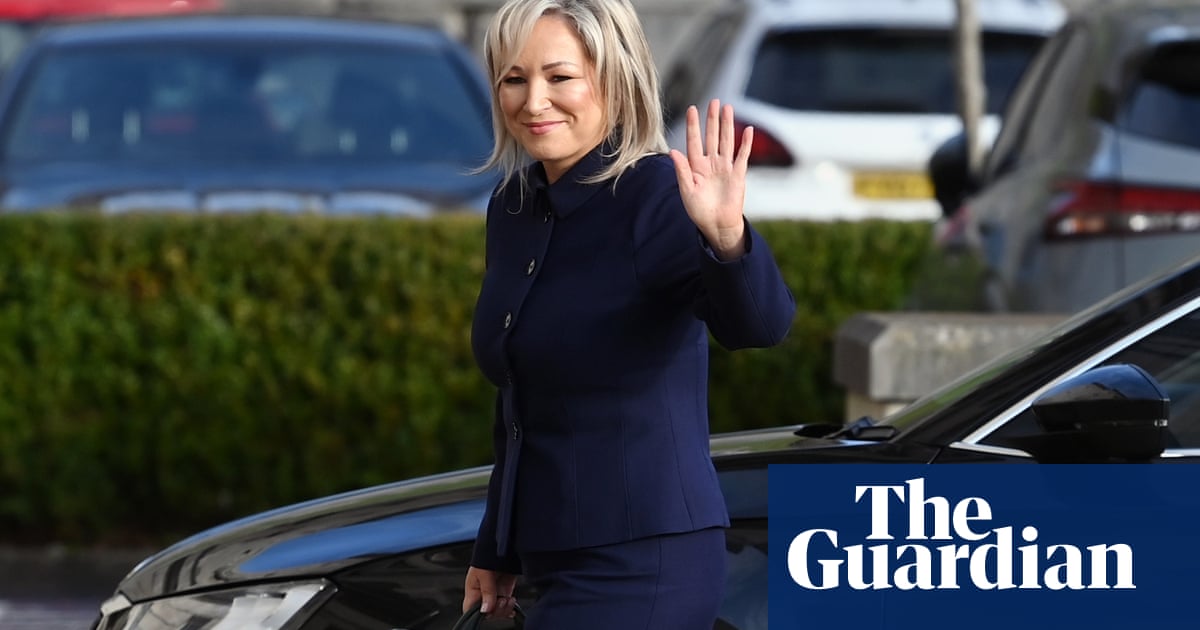
Sir Jeffrey Donaldson, the Democratic Unionist party leader, has rebuffed appeals by the British and Irish governments and said he will block the formation of a new power-sharing administration in Northern Ireland.
Donaldson told the Northern Ireland secretary, Brandon Lewis, on Monday that the DUP will not nominate ministers to the Stormont executive later this week unless Downing Street takes “decisive action” on the Brexit protocol.
Such a boycott would trigger a political crisis and paralyse devolved government in the region just a week after Sinn Féin triumphed in an assembly election, making its deputy leader, Michelle O’Neill, the putative first minister.
The DUP came second, winning 25 seats to Sinn Féin’s 27 in the 90-seat assembly. Under power-sharing rules, the executive cannot form unless the DUP nominates a deputy first minister and other ministers.
After meeting Lewis, Donaldson repeated an election campaign promise to disrupt Stormont unless there were changes to the protocol. “Until we get decisive action taken by the UK government on the protocol, we will not be nominating ministers to the executive,” he said.
The DUP says the protocol, which puts trade checks on some goods entering Northern Ireland from Great Britain, harms the economy and undermines the region’s position within the UK. Only if those problems were resolved could it join an executive, said Donaldson. “We want to see stable political institutions, we want to be part of the executive, we want to play our part.”
Most unionists oppose the protocol but are divided on how to respond. Some favour working with London and Brussels to tweak the agreement. Others advocate obstruction and resistance, a radical strain that has pulled the DUP to a hardline position, leaving it isolated.
Lewis, who flew into Belfast from London, delivered a coded rebuke when he urged all the main parties at Stormont to deliver a “stable and accountable” devolved government.
Ireland’s taoiseach, Micheál Martin, said Northern Ireland’s party leaders had a duty to heed voters who wanted a functional government to tackle crises in the cost of living and health services: “All of us now have to have due regard to stability within the north, to the full workings of the institutions of the Good Friday agreement.” He told RTÉ there was a “landing zone” for compromise on the protocol between London and Brussels.
Downing Street has given mixed signals about possible unilateral action. All sides will monitor the Queen’s speech at the state opening of parliament on Tuesday for further signals. The EU vice-president, Maroš Šefčovič, urged pragmatism. “We need the UK government to dial down the rhetoric, be honest about the deal they signed and agree to find solutions within its framework,” he said in a statement.
O’Neill said the DUP should not try to “punish the public” for its mistakes on Brexit. “Brinkmanship will not be tolerated where the north of Ireland becomes collateral damage in a game of chicken with the European Commission. Make no mistake, we and our business community here will not be held to ransom.”
Other party leaders echoed the calls for the swift formation of an executive. “I want us to sit down, get the negotiations under way on the programme for government and the budget,” said Naomi Long, leader of Alliance, which won 17 seats, making it the third biggest party. “We need the DUP to step up to the plate. You know, with power comes responsibility, and people now need to take the responsibility seriously.”
Doug Beattie, leader of the Ulster Unionist’s nine assembly members, said problems with the protocol would be resolved only through talks between London and Brussels. “Northern Ireland has to have a say in that. We’ll only have a say if we have a government.”




